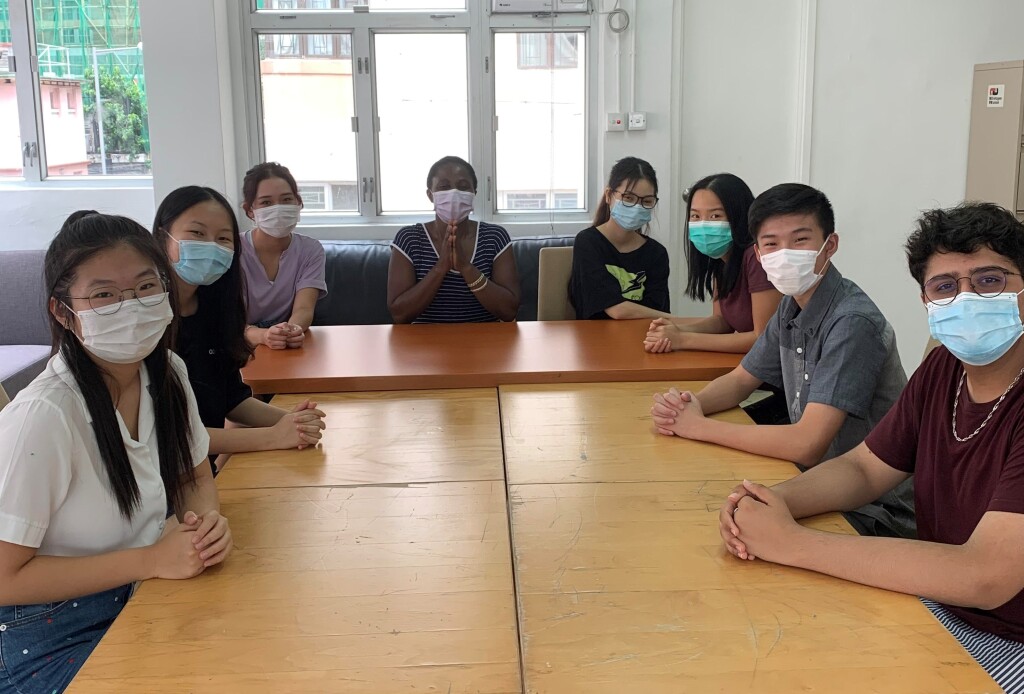
Tom* sought asylum in Hong Kong twenty years ago. He is from Pakistan and met his wife here during this time. They now have four children (16, 10, 8, 5 years old) – all asylum-seekers. While Tom used to work in construction back home, he has not been able to work at all in Hong Kong. Under the city’s law, refugees are banned from working, though many choose to pursue illegal jobs to make ends meet. However, in response to this, Tom said: “I cannot pursue illegal work, I do not dare – what will happen to my wife and children if I go to jail?” But without employment, living in limbo has taken a toll on him: “My life is empty,” he tells me, “Twenty years. I’m wasting my time. I only bring my children to school and back, nothing else to do.” There are tears in his eyes as he speaks and I have to look away.
When asked what the most difficult aspect of refugee life is, Tom sighs: “Life is hard here because everything is so expensive.” Just recently, his youngest daughter’s school decided to change the uniforms. However, he could not afford the new uniform and had to ask the school if they could delay the payment for a month. Luckily, the school was able to let Tom’s daughter stay in school, but Tom frets over where to find the money for the fees. Refugees live on a scant $3200 monthly from the government, often finding themselves lacking sufficient income. Parents, like Tom, are under enormous pressure to provide for their children in the notoriously expensive city of Hong Kong.
Yet many have also found solace in this city. Hannah* is a Ugandan refugee: “I came to Hong Kong hurt and broken,” she says. Hannah has since converted from Islam to Christianity, which played a pivotal role in her life: “I would have been dead, but God heard my prayers.” Though initially her life in Hong Kong was difficult, Hannah has now found a community at her church, friends who supported her when she was admitted to hospital and money for treatment was scarce. “If you believe in God, anything is possible,” she beams, “I’ve let go of my troubles. I appreciate what I can achieve. I know God has a plan.” Hannah now volunteers at the Refugee Union, a place she describes as a safe haven that listens to the voices of the marginalized. “How can I not help when they’ve helped me?” she asks. “Everyone should put their feet in another person’s shoes and feel their life.”
Anne* is also an Ugandan refugee, once a teacher back home. She came to Hong Kong a decade ago in search of safety away from the authoritarian regime under Yoweri Museveni. “The big difference between Uganda and Hong Kong is that here there is security and the rule of law. In Uganda, people go out one day and don’t come back. People die silently. I had to leave. If you have any power, you must. If you don’t find a way out, you will be dead.” Anne herself had her land and property taken away forcefully by the government. She cannot return to Uganda as she fears she will be labelled a terrorist and thrown in jail and possibly tortured. “We are trying to tell the truth, but now we are the government’s enemies,” she shakes her head.
Under the iron fist of the dictator, corruption, censorship and violence plague Uganda. “Uganda shouldn’t be a poor country. It is only because of poor leadership and management. The President doesn’t develop the country at all. He came to steal, kill, destroy and spoil our future. He treats human lives as a business.” As a mother back home, Anne finds it painful to watch the news, because it reminds her of her family and her people. “We’ve lost our futures, we’ve lost everything. In our heads, we are still connected to Uganda. Sometimes we become insane thinking about this. I cry in my sleep, because all I want is for my people to be safe and to be free. Is that too much to ask?”
* names were changed for privacy reasons
Written by Sophia Zhang (16) – Shatin College


